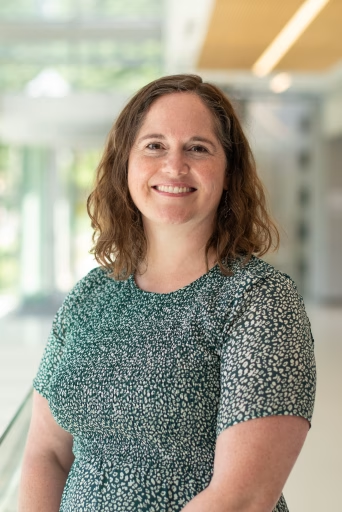
- This event has passed.
ECE Distinguished Seminar Series: Laura Balzano
November 15, 2024 @ 3:00 PM – 4:00 PM
Orchard View Room, Discovery Building
Laura Balzano
Associate Professor, Electrical Engineering and Computer Science
University of Michigan
Finding low-dimensional structure with nonconvex optimization
Modern machine learning has much in common with classical signal processing and statistics. Even 100 years ago, finding a small number of important variables in a “large” dataset was a central problem of interest. Historically, this was done to explain phenomena in data, such as differences in flower species or types of intelligence in IQ test responses; more recently it was also leveraged to ease computational demands. Today we are still using the same techniques, dressed up in different ways, to find important variables in large datasets. The goal continues to be both to reduce data size for computation and understand the underlying phenomenon in both science and human behavior.

In this talk I will share our work understanding how to find linear structure in modern machine learning data. The basic model continues to be Principal Component Analysis (PCA), which finds low-dimensional linear structure within data. The cornerstone fact for solving our problems is that PCA is the solution to a nonconvex optimization problem. We build on that with nonlinearities, constraints like sparsity structure, clustering, and more. I will talk about two problems: matrix completion and compression of deep learning models. In matrix completion, we need to identify low-dimensional structure to help us interpolate missing entries in a matrix. When compressing deep learning models, finding low-dimensional structure improves computational efficiency and memory usage during training. Using nonconvex optimization, we extract the necessary low-dimensional structures for these tasks.
Bio: Laura Balzano is an associate professor of Electrical Engineering and Computer Science, and of Statistics by courtesy, at the University of Michigan. She received a BS from Rice University, MS from UCLA, and PhD from the University of Wisconsin–Madison in Electrical and Computer Engineering. She is recipient of the NSF Career Award, ARO Young Investigator Award, AFOSR Young Investigator Award, and faculty fellowships from Intel and 3M. She received an MLK Spirit Award and the Vulcans Education Excellence Award at the University of Michigan. She is an associate editor for the SIAM Journal of the Mathematics of Data Science. Her main research focus is on modeling with big, messy data — highly incomplete or corrupted data, uncalibrated data, and heterogeneous data — and its applications in a wide range of scientific problems. Her expertise is in statistical signal processing, matrix factorization, and optimization.

